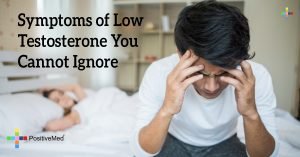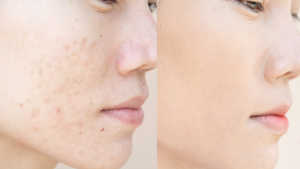
Body Weight Changes When You Stop Getting Lucky
[nextpage title=”…”]
Modern living is busy, technology-rich, and stressful. Unfortunately, this can make it very difficult for partners to find time to engage in the physical act of love. It’s difficult to be close to a partner who has brought the laptop into the bedroom, and it’s equally as difficult to be close to someone who is exhausted. Medications can affect feelings as well, and some antidepressants can lead a person to stop getting lucky. What are the consequences of not being close to your partner? In some instances, you might gain body weight because you are no longer enjoying physical closeness. The list below describes the ways body weight changes when you stop getting lucky.

1. You are Burning Less Calories
Being close with a loved one can burn around 100 calories per half-hour. Dr. A.J. Marsden from Beacon College in Leesburg, Florida explains that if you are not burning these calories in another way, you open yourself up to gaining weight over time.
2. Your Depression May Become Worse
Current research shows that regular lovemaking can help lessen a depressed mood. Dr. Marden notes that depressed individuals often turn to food for comfort. People who feel depressed may also turn to drugs aimed at treating depression, and these medications often cause weight gain as well.
3. You Could Become Lazy
Scientists have discovered that physical closeness boosts the growth of neurons in the region of the brain known as the hippocampus. When you are not intellectually sharp, it’s a lot easier to sit around and watch TV when you could be out exploring the world. An inactive brain leads to an inactive person, and inactive people gain body weight.
RELATED ARTICLE: What Happens to Your B00bs When You Quit Lovemaking
[/nextpage] [nextpage title=”…”]
4. You Could Become Insecure about Your Body
Not experiencing closeness with a partner could lead you to feel insecure about your body, and it’s all too easy to turn to food when you are feeling insecure. Dr. Marsden points out that people often gain weight after ending a marriage. When you have a partner you are regularly engaged with, you take better care of yourself to look appealing to your partner.
5. You Could Have an Increase in Anxiety
Today’s modern world is stressful, and it’s easy to feel anxious and uncertain. Scottish researches have proved that being close with another person helps you deal with stressful life situations. When you are close with a partner, your brain releases chemicals that make you feel calm, cool, and collected. These feel-good chemicals combat the fight-or-flight hormone, cortisol, which is produced when you feel anxious. This hormone causes weight gain.
6. You Could Lose Muscle Tone
Women’s health expert Dr. Angela notes that closeness is great exercise. The act itself requires the movement and stamina required to build muscle tone. Because your muscles require a great deal of energy, people with more muscle tone do not gain body weight as easily as people who do not have defined muscles. Muscle tissue burns calories even when you are at rest, so any lack of muscle tissue contributes to weight gain.
Togetherness with someone you care about has more benefits than just fun. The act can also stave off prostate cancer in men and increase immunity to colds and flu for both men and women. Another great benefit to closeness is that it can help you stay slim and healthy. The next time you are worried that you are putting on unwanted pounds, you may want to consider the physical act of love as a way to keep the weight off.
[/nextpage]






